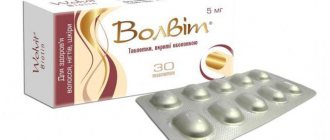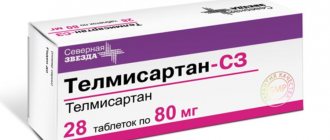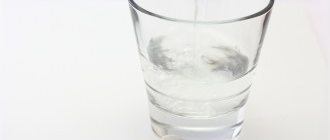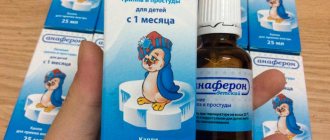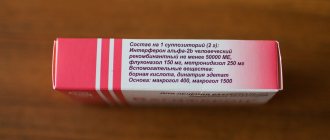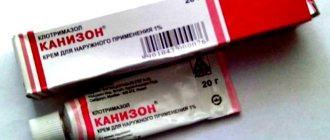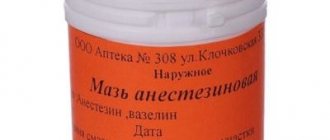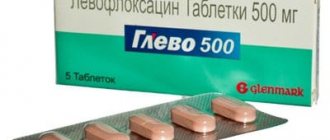If digestion is disrupted, fermentation processes develop in the stomach, the functionality of the nervous system is disrupted, or intestinal contractions change, a large amount of gases may begin to accumulate in the intestinal canal. They stretch the organ, contribute to circulatory and respiratory disorders, and the appearance of signs of intoxication. Carminative medications are used to reduce or stop the formation of gas in the intestines. One of the effective ones is “Pepfiz”, the instructions for use confirm this.
Pharmacodynamics and pharmacokinetics
Pharmacodynamics
A combined drug that normalizes digestive processes due to the enzymes it contains. Reduces gas formation and accelerates gastrointestinal motility. Papain and fungal diastase are plant digestive enzymes. Papain is a proteolytic enzyme that is obtained from the milky juice of papaya fruit. It hydrolyzes proteins, and fungal diastase hydrolyzes carbohydrates, making their digestion and absorption easier. Simethicone affects the surface tension of gas bubbles, reduces it and the bubbles disintegrate. Gases are absorbed by the intestines and are also eliminated through peristaltic movements of the intestines.
When the effervescent tablet dissolves, sodium and potassium citrates are released, neutralizing hydrochloric acid. In this regard, heartburn and discomfort associated with increased acidity are reduced. The antacid effect of the drug protects digestive enzymes from the aggressive action of gastric juice.
Pharmacokinetics
The active substances are chemically inert, are not absorbed and are excreted through the gastrointestinal tract unchanged.
Instructions for use
pharmachologic effect
Pepphysis is a combined drug that has a digestive enzyme effect, reduces gas formation in the intestines, and accelerates gastrointestinal motility.
Fungal diastase and papain are digestive enzymes that facilitate the digestion of carbohydrates and proteins, promoting more complete absorption of these components in the small intestine. Papain hydrolyzes proteins and peptides, and fungal diastase hydrolyzes carbohydrates (glycogen, starch, and their metabolic products).
As for simethicone, it helps to reduce the surface tension of gas bubbles and their disintegration. The released gases are absorbed by the intestinal walls and, thanks to intestinal peristalsis, are eliminated. Effervescent tablets quickly dissolve in liquid to release potassium citrate and sodium citrate, which neutralize the effect of HCl in the stomach, reducing symptoms caused by high acidity.
The antacid effect develops quickly and protects digestive enzymes from the destructive effects of gastric juice.
Indications for use
Pepfiz is prescribed to patients with pathological conditions associated with damage to the exocrine functions of the pancreas. In the presence of such conditions, complex therapy is carried out, one of the components of which is the use of Pepphys.
Typically, the drug is prescribed for diseases caused by delayed gastric emptying and digestive enzyme deficiency.
Pepphys helps suppress:
chronic pancreatitis;- liver diseases;
- non-ulcer dyspepsia syndrome;
- pathologies in the proximal parts of the small intestine;
- enteritis;
- flatulence;
- feelings of a full stomach (from overeating, drinking coffee or alcohol, smoking, eating unusual foods);
- intense gas formation after surgical interventions.
Pepfiz is often prescribed to patients in preparation for ultrasound and x-ray examinations of the abdominal cavity.
Since the drug is “free” from animal enzymes, it does not cause unwanted reactions caused by an imbalance of uric acid (urolithiasis, gout). Pepfiz does not contain lipase, so it cannot induce weight gain. Often this drug is prescribed to patients who, for one reason or another, cannot tolerate drugs with animal enzymes.
Mode of application
Pepphysis is taken orally, after meals. Before use, the effervescent tablet is removed from the strip and completely dissolved in half (130 ml) glass of water.
As part of the standard dosing regimen, take one tablet two to three times a day.
When preparing for an x-ray or ultrasound examination of the abdominal organs, the drug should be taken one to two days before the procedure. Do this twice a day (evening, morning) 1 or 2 tablets.
Release form, composition
The drug Pepfiz is flat and round effervescent tablets with the smell of orange and beveled edges. The color of the tablets varies from white-pink to pure white. There may be pinpoint inclusions. Tablets are packaged in strips and cartons. One strip contains 2 tablets, one package contains 1, 2 or 7 strips.
Each Pepfiz tablet contains 60 mg of papain, 20 mg of fungal diastase and 25 mg of simethicone. The list of auxiliary components includes substances such as sodium bicarbonate, potassium bicarbonate, saccharin, sodium lauryl sulfate, dye, citric acid, fumaric acid, sodium carbonate, flavoring.
Interaction with other drugs
Parallel use of Pepfiz with antacids is undesirable. Other interactions have not been described by the drug manufacturer.
Reviews of Pepfiz
Pepphys is a type of defoamer, but its effectiveness is enhanced by enzymatic components. Pepfiz tablets are naturally acid-resistant, so they are used in liquid form (the tablet dissolves in water), this improves mixing with food and is convenient when treating children. The drug eliminates symptoms associated with gas formation, high acidity and insufficient digestion of carbohydrates and proteins.
Judging by the reviews, the drug was used for various functional digestive disorders to eliminate: nausea, belching, a feeling of heaviness and discomfort in the stomach, flatulence and diarrhea. Many patients report a noticeable improvement in their condition when taking this drug. The phenomena of gas formation decreased quickly, even if the diet was not followed. A decrease in bloating was noted already on the third day, and after two weeks there was a persistent relief of this symptom. The drug can be used as an emergency treatment. No side effects were observed.
- “... A fast-acting drug - it eliminates bloating and rumbling in my stomach, a feeling of fullness in the stomach.”
- “... It helped me - my appetite normalized and the heaviness in my stomach and nausea disappeared.”
- “... I took Pepfiz and got rid of rumbling in my stomach and heaviness in my stomach. The stool has returned to normal."
- “... A pleasant medicine, it was effective for me when taken for a long time - the pain after eating and belching disappeared.”
- “... I'm worried about flatulence, especially in the morning. I took Pepfiz, Espumisan, Bifidumbacterin. Does not help. Apparently we need to be seriously examined by a gastroenterologist.”
Many patients did not like the taste of the drug.
- “... In my opinion, it was possible to do without dyes and flavors, because this is medicine.”
- "… I did not like. The taste is too sweet, so I couldn’t take more than one tablet. Why add sweeteners and colorings to the preparation.”
However, it should be noted that this drug is less effective and is not suitable for replacement therapy of severe pancreatitis with impaired enzyme function, since the enzyme activity in the drug is low - 75 times less than that of drugs of animal origin. As you can see, the selection of an enzyme preparation is individual and complex, since it is necessary to take into account the characteristics of digestive disorders in each patient.
Side effects
Judging by people's reviews, the use of Pepfiz rarely leads to the development of undesirable effects. The only possible side effects are mild allergic reactions that occur in patients predisposed to allergies.
Overdose
There have been no reports of overdose with Pepfiz yet.
- If you have any symptoms of the disease, you should immediately consult a doctor. You can view a list of gastroenterology clinics on our website
- You will be interested! The article describes symptoms that make it possible to suspect the presence of liver disease in the early stages
- You will also be interested in learning more about the treatment of various diseases of the gastrointestinal tract
Contraindications
The drug is not prescribed:
- children under 12;
- pregnant patients;
- people with hypersensitivity to the ingredients of the medication;
- women who are breastfeeding.
For diseases of the kidneys, liver, as well as arterial hypertension, Pepfiz should be used with extreme caution.
During pregnancy
Pepfiz is not prescribed to nursing mothers and pregnant patients.
Contraindications
Pepsane-r (pepsane-r) instructions for use
Pepfiz also has a number of contraindications for its use. These include:
- peptic ulcer of the stomach and duodenum;
- bleeding of the digestive organs;
- intolerance or individual hypersensitivity to any of the components of this drug;
- children under 12 years of age;
- period of pregnancy and breastfeeding.
Caution must be exercised when prescribing Pepfiz when the patient's medical history includes diseases such as arterial hypertension, renal failure, liver failure, and when the patient is elderly
Pepfiz price, where to buy
Unienzyme with mps (unienzyme with mps) instructions for use
Education: Graduated from the Sverdlovsk Medical School (1968 - 1971) with a degree in Paramedic. He graduated from the Donetsk Medical Institute (1975 - 1981) with a degree in epidemiologist and hygienist. He completed his postgraduate studies at the Central Research Institute of Epidemiology in Moscow (1986 - 1989). Academic degree - Candidate of Medical Sciences (degree awarded in 1989, defense - Central Research Institute of Epidemiology, Moscow). Completed numerous advanced training courses in epidemiology and infectious diseases.
Work experience: Work as head of the disinfection and sterilization department 1981 - 1992. Work as head of the department of especially dangerous infections 1992 - 2010. Teaching activity at the Medical Institute 2010 - 2013
If digestion is disrupted, fermentation processes develop in the stomach, the functionality of the nervous system is disrupted, or intestinal contractions change, a large amount of gases may begin to accumulate in the intestinal canal. They stretch the organ, contribute to circulatory and respiratory disorders, and the appearance of signs of intoxication. Carminative medications are used to reduce or stop the formation of gas in the intestines. One of the effective ones is “Pepfiz”, the instructions for use confirm this.
Storage conditions and periods
Pepfiz can be stored for two years, subject to the manufacturer's recommendations. In other words, the drug can be stored at temperatures below 25 °C.
All gastroenterology clinics and medical centers in your city. Tests and ultrasound. Consultation with a gastroenterologist. Diseases of the digestive system. Find out more: - In Kiev (Hertz, Ilaya, Euromed) - In St. Petersburg (SM-Clinic, Longevity, Allergomed, Doctor +, BaltZdrav, Professor) - In Moscow (SM-Clinic, Medlux, Onmed) - In Kharkov ( TsMEI, Olympic, Victoria, Fortis, Ecomed) - In Minsk (Belgirudo, Art-Med-Company, Sinlab, Mikosha, GrandMedica, MedClinic) - in Odessa (Medea, On Clinic, Into Sano, Venus) - In Razyan (Trust + , Polyclinic-Pesochnya, Evrikas +) - in Nizhny Novgorod (Only Clinic, Alpha Center, EuroClinic, SOLO, Altea) - gastroenterological clinics of Tyumen (Doctor A+, Clinic "Vera", Avicenna, Medis, Sibirina, Your Doctor)
Directions for use and dosage
Pepfiz, according to the instructions, should be taken during or after meals. Single dosage – 1-2 tablets. Before taking, the tablet must be dissolved in 100-130 ml of water. The frequency of use of the drug is 2-3 times a day. The duration of treatment is determined individually by the doctor depending on the indications, effectiveness and tolerability of the drug.
When preparing for an ultrasound or x-ray examination of the abdominal organs, you should take 1-2 tablets in the morning and evening for 1-2 days before the examination.
Analogs
There are many enzyme preparations on the pharmacological market that have a similar therapeutic effect. Doctors can prescribe different medications to eliminate flatulence and other problems.
Frequently used analogues of "Pepfiz" include:
- “Abomin” contains a complex of enzymes that break down proteins in the amount of 50,000 units. Its cost is one hundred and seventy rubles.
- Wobenzym contains pancreatin, proterol, papain, bromelain, amylase, trypsin and other components. Its price is one thousand eight hundred and seventy rubles per pack of two hundred pills.
- "Biozyme", which contains pancreatin. The price of the drug is quite high. For ninety tablets you will have to pay more than two thousand rubles.
- "Niguedaza." The medicine contains enzymes that decompose fats of plant and animal origin.
- "Somylase", which contains amylase and lipase. The drug can be purchased only by pre-order.
- "Espumizan", which contains simethicone. Its cost is about three hundred and seventy rubles per pack of twenty-five capsules. The drug is also produced in the form of an emulsion.
- "Meteospasmil" contains simethicone. Price - three hundred eighty-five rubles.
- "Simicol", the drug contains simethicone and alverine citrate. Price - two hundred rubles.
- “Bobotik” is a drug in the form of an emulsion that contains simethicone. The cost of the medicine is two hundred eighty-six rubles.
The use of any of the above drugs must be previously agreed with a doctor; self-medication is not recommended.
Characteristics and description of the drug
“Pepfiz” are tablets containing active ingredients such as papain, simethicone and fungal diastase. The auxiliary components include substances such as sodium bicarbonate, sodium carbonate, potassium bicarbonate, citric acid, flavoring, dye and others.
This drug is an enzymatic, carminative. It helps speed up gastrointestinal motility, reduce the formation of gases, normalize the digestion process, assimilation of proteins and carbohydrates.
According to the instructions for use, "Pepfiz" is available in the form of effervescent tablets with a pink tint and an orange scent. One package contains one, two or seven strips, each containing two tablets.
Doctors prescribe medication for the following pathologies and conditions:
- flatulence resulting from gastrointestinal pathologies;
- consumption of alcohol, caffeine, nicotine;
- binge eating;
- kidney disease;
- chronic pancreatitis;
- non-ulcer dyspepsia;
- enteritis;
- formation of gases after surgery;
- preparation for ultrasound and radiography.
One tablet contains 419 milligrams of sodium, so you should limit your salt intake during therapy.


